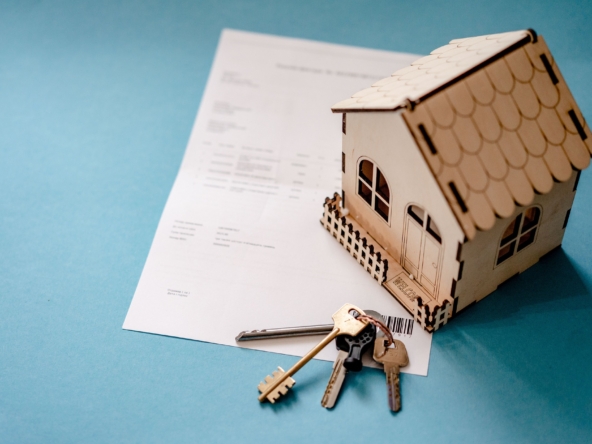Exploring the Various Authorisations Required for Foreigners to Acquire Property in Mauritius
Mauritius is an attractive option for foreigners looking to purchase property, as it offers a wide range of benefits and a favourable legal framework. However, before any foreign investor can buy property in Mauritius, they need to ensure that they have all the necessary authorisations.
The first step is to get the relevant permits from the Econnomic Board Of Development (EDB). This is the government body that regulates all foreign investments in Mauritius. To apply for a EDB permit, the investor must provide documentation such as a copy of their passport, a business plan and a bank statement. The EDB will then review the application and issue a permit if the investor meets all the requirements.
The investor must also get a Non-Citizen Status Certificate from the Mauritian Immigration Office. This is required for all foreign investors who want to purchase property in Mauritius. The certificate proves that the investor is a non-citizen of Mauritius and is eligible to own property in the country. The investor must provide the Immigration Office with a valid passport, proof of residence and a detailed investment plan.
The investor must also obtain a Certificate of Residence from the Mauritian Revenue Authority. This is necessary for all foreign property buyers in Mauritius and serves as proof that the investor is a resident of the country. To obtain this certificate, the investor must provide the Revenue Authority with documentation such as a bank statement and a copy of their passport.
The investor must then apply for an authorization from the Mauritian Land Commission. This is necessary for all foreign property buyers in Mauritius. The investor must provide the Land Commission with a valid residence certificate, a copy of their passport, a copy of their business plan, and evidence of their financial standing. The Land Commission will then review the application and issue an authorization if the investor meets all the requirements.
Finally, the investor must obtain a Certificate of Title from the Land Registry. This is a document that shows the legal ownership of the property. To obtain this certificate, the investor must provide the Land Registry with the EDB permit, the Non-Citizen Status Certificate, the Certificate of Residence and the authorization from the Land Commission.
In summary, before any foreign investor can buy property in Mauritius, they must obtain all the necessary authorisations from the EDB, the Immigration Office, the Revenue Authority and the Land Commission. They must also obtain a Certificate of Title from the Land Registry. These authorisations are essential for any foreign investor looking to purchase property in Mauritius.
Differentiating Between IRS, RES, PDS and Smart City Properties in Mauritius
Integrated Resort Scheme (IRS): The Integrated Resort Scheme (IRS) is a program designed to attract foreign investment into the country. Under this program, foreign investors are able to purchase plots of land, build their own residential properties, and rent them out for a specified period of time. The IRS is largely focused on developing tourism-related businesses and activities.
Real Estate Scheme (RES): The Real Estate Scheme (RES) is the most popular form of property investment in Mauritius. The RES allows investors to purchase plots of land and construct residential buildings on them. These buildings can be used for residential, commercial, or industrial purposes. The RES is a good choice for investors looking for a long-term return on their investment.
Property Development Scheme (PDS): The Property Development Scheme (PDS) is a government-backed initiative designed to promote the development of new properties in Mauritius. Under the PDS, foreign investors are able to purchase plots of land and construct residential or commercial properties on them. The PDS is usually used for large-scale projects, such as the development of new housing schemes or the construction of new office buildings.
Smart City Properties: Smart City Properties are a special type of property designed to attract technology-related businesses and activities. These properties are typically situated in strategically-located areas within Mauritius and are designed to be equipped with modern infrastructure and amenities. Smart City Properties are ideal for businesses looking to set up shop in Mauritius and take advantage of the country’s booming economy.
The Benefits of Investing in Ground +2 Apartments in Mauritius
Mauritius is a sought-after destination for real estate investors looking for a safe and profitable investment. Investing in ground +2 apartments in Mauritius offers a range of advantages that can help investors maximise their returns.
First and foremost, the rental market in Mauritius is very strong. Mauritius is a popular tourist destination, and many people come to the country to take advantage of its stunning scenery and relaxed atmosphere. With the demand for rental properties continuing to increase, investors can enjoy steady rental income from their ground +2 apartments. This can be especially beneficial if the apartment is located in a popular tourist area.
Furthermore, the government of Mauritius offers a range of incentives to encourage foreign investment in the real estate sector. These include tax exemptions, stamp duty reductions, and a whole host of other benefits. This makes it easier for investors to make a return on their investment and maximise their profits.
The cost of living in Mauritius is also very affordable, which makes it an attractive option for investors looking to buy a property in the country. The cost of property is relatively low, and the cost of living is also lower than in other countries in the region. This means that investors can enjoy a greater return on their investment, as well as lower running costs.
Finally, investing in ground +2 apartments in Mauritius is also a great way to diversify your portfolio. By investing in multiple properties, investors can spread their risk across a range of assets and ensure that their portfolio is well-balanced. This can be especially beneficial for those who are looking for a long-term investment option.
Overall, investing in ground +2 apartments in Mauritius offers a range of benefits that can help investors maximise their returns and enjoy a profitable and secure investment. With the strong rental market, attractive incentives, and low cost of living, it is an attractive option for many investors.
How to Obtain the Necessary Authorisations to Purchase Local Property in Mauritius
Mauritius is a popular destination for international property buyers, offering a range of benefits including low taxes and a strong infrastructure. Purchasing property in Mauritius can be a complex process, as the local laws governing property acquisition are stringent and require several authorisations.
In order to purchase property in Mauritius, potential buyers must first obtain an Alien Landholding License (ALL). This license is necessary for all foreign individuals or companies interested in buying land, apartments or villas in the country. To obtain the ALL, the buyer must submit an application form to the EDB, providing details such as the buyer’s name, address and the size of the land. The EDB will then review the application and issue the ALL if the buyer meets the necessary criteria.
The buyer must then obtain a Non-Citizen Status Certificate from the Ministry of Immigration. This certificate is necessary for all non-citizens who wish to purchase land in Mauritius. The application must include the buyer’s name, address, nationality and passport information, as well as a copy of the ALL.
Once the ALL and Non-Citizen Status Certificate have been obtained, the buyer can then proceed to the next step in the process: obtaining a Property Transfer Permit from the Ministry of Finance. This permit is required for all purchases of residential property in Mauritius. The application must include the buyer’s name, address and passport information, as well as a copy of the ALL and Non-Citizen Status Certificate.
Finally, once all the necessary authorisations have been obtained, the buyer must register the purchase with the Land Registry Department. This can be done either in person or by sending the relevant documents to the department.
By following these steps, potential buyers can obtain the necessary authorisations to purchase local property in Mauritius. It is important to note that the process can take several weeks, so it is advised to begin the process as soon as possible to ensure a smooth and successful purchase.
Navigating the Legal System When Purchasing Property in Mauritius
When purchasing property in Mauritius, the legal system can be complex and can seem overwhelming. In order to ensure that your experience is as smooth as possible, it is important to understand the various steps involved and the legal instruments available. This article will provide an overview of the legal system when purchasing property in Mauritius.
The first step in the process is to find the property you want to purchase. This can be done through a real estate agent or by simply searching for properties online. Once you have found the property, you will need to make an offer to the seller. Once your offer is accepted, it is important to have a contract drawn up by a qualified lawyer. This contract should include all of the terms and conditions of the sale, such as the purchase price, payment schedules, and any other applicable legal requirements.
Once the contract is finalized, it is necessary to register the sale with the Land and Property Registration Office in Mauritius. This registration requires a number of documents, including the sale contract, the buyer’s and seller’s identification documents, and proof of payment. Once the registration is complete, the deed of sale is registered and the title of the property is transferred to the buyer.
It is also important to note that there are certain taxes and fees that must be paid when purchasing property in Mauritius. These include a stamp duty, which is calculated based on the value of the property, and a registration fee. Additionally, there may be additional taxes and fees that must be paid depending on the type of property being purchased.
Finally, it is important to note that purchasing property in Mauritius can be a complex process. It is important to seek professional assistance from a qualified lawyer or legal advisor to ensure that the process goes smoothly and that all legal requirements are met. With the right guidance and understanding, the process of purchasing property in Mauritius can be an enjoyable and stress-free experience.
Understanding the Requirements for Property Acquisition in Mauritius
Property acquisition in Mauritius is becoming increasingly popular among foreign investors and businesses seeking to establish their presence in the Indian Ocean island nation. Mauritius is a desirable destination for its low taxes, strategic location, and robust infrastructure, making it an attractive destination for business and real estate investments. However, there are several requirements that must be fulfilled before a foreign investor can purchase real estate in Mauritius.
In order to acquire property in Mauritius, foreign investors must obtain a permit from the EDB. The EDB is the government body responsible for authorizing and controlling investment and development in Mauritius. It is important to note that this permit only applies to non-Mauritian citizens, corporations and entities. In order to be eligible for the permit, foreign investors must prove that they have the necessary resources and financial capacity to invest in the country. They must also demonstrate that the investment will create jobs and generate economic growth in Mauritius.
Once the EDB has granted the permit, investors must also obtain a Certificate of Non-Restriction on Title (CNRT). One of the main purposes of this certificate is to ensure that the property purchased will not be subject to any restrictions or encumbrances that could hinder its use and development. The certificate is issued by the Land Registrar, who will also be responsible for registering the title deed of the property.
In addition to the EDB permit and CNRT, foreign investors must also obtain a Resident Permit. This permit is issued by the Ministry of Immigration and is required for all foreign nationals wishing to stay in the country for more than three months. The permit must be renewed every two years and applicants must demonstrate that they have sufficient funds to support themselves and any dependent family members during their stay in Mauritius.
Finally, foreign investors must also register with the Mauritius Revenue Authority (MRA) and obtain a tax identification number. This number is necessary for any investments made in the country and will be used to pay income and corporate taxes.
By following these steps and meeting the necessary requirements, foreign investors can purchase property in Mauritius and benefit from the many advantages that the country has to offer.
Investigating the Tax Implications of Buying Property in Mauritius
Mauritius is an attractive destination for many foreign property buyers, thanks to its attractive climate, stunning beaches, and tax incentives. However, before making a purchase, it is important to understand the tax implications. This article will provide an overview of the tax implications of buying property in Mauritius.
First and foremost, there are no capital gains taxes in Mauritius. This means that any profits made from the sale of a property are not subject to taxation. There are also no transfer taxes, meaning that the seller must pay the full amount of the purchase price.
Income tax is applicable on rental income from property in Mauritius. The rate depends on the individual’s residency status and tax bracket. Non-residents are subject to a flat rate of 15%. Residents are subject to a progressive tax rate, depending on their income.
Residents of Mauritius are also subject to property taxes on their real estate holdings. The rate of taxation is determined by the type of property, its value, and the location. Properties located in urban areas are subject to higher taxes than those in rural areas.
Finally, there is an annual tax on the value of all land held in Mauritius. This tax is based on the current market value of the land and is paid to the government. The amount of tax paid is determined by the value of the land and the year in which it was purchased.
In conclusion, there are a number of tax implications to consider when buying property in Mauritius. It is important to understand the various taxes and how they apply to your situation in order to ensure that you are making the best financial decision.
Exploring the Pros and Cons of Investing in Mauritius Real Estate
Mauritius is an island nation in the Indian Ocean with an economy that is on the rise and a population that is steadily growing. The real estate industry in Mauritius is an attractive option for investors due to the country’s favorable tax laws and its strong economic growth. However, there are both pros and cons to investing in Mauritius real estate that potential investors should consider before deciding to invest.
Pros
One of the biggest advantages of investing in Mauritius real estate is the country’s favorable tax laws. Mauritius does not impose any capital gains taxes on property sales, making it an attractive option for investors who are looking to make a profit. Additionally, the Mauritian government offers incentives to foreign investors, such as tax breaks and discounts on property purchases.
The economy of Mauritius is also strong and growing, making it a safe investment option. The country has a well-developed infrastructure, a stable political system, and a healthy banking sector, all of which make it an attractive destination for investors.
Finally, the real estate market in Mauritius is growing, which means that there are plenty of opportunities for investors to find a good deal. The market is relatively new and still has plenty of potential for growth, making it an attractive option for long-term investments.
Cons
The biggest downside to investing in Mauritius real estate is the cost. Property prices in Mauritius are high compared to many other countries, making it difficult for some investors to afford. Additionally, the cost of living in Mauritius is also high, which can be a deterrent for those looking for a more affordable investment option.
In addition, the real estate market in Mauritius can be a bit volatile and unpredictable. The market is still relatively new, so there is a risk that prices could suddenly drop or that the economy could take a downturn. This can make it difficult to predict the returns on an investment in Mauritius real estate.
Finally, foreign investors may find it difficult to navigate the paperwork and process of purchasing property in Mauritius. The country has a unique set of laws and regulations that can be confusing for those unfamiliar with them.
Overall, investing in Mauritius real estate is an attractive option for those looking to make a profit, but it is important to weigh the pros and cons before making a decision. Potential investors should take into consideration the cost of purchasing property in Mauritius, the country’s favorable tax laws, and the associated risks before investing.
How to Ensure You Are Following Mauritius Property Laws
Mauritius is a beautiful country with a booming real estate market. In order to ensure that you are following the laws and regulations of the country when purchasing property in Mauritius, there are a few steps you should take.
First, it is important to understand the property laws of Mauritius. Many of the property laws in Mauritius are related to foreign ownership, taxation, and property rights. It is important to familiarize yourself with the laws and regulations of Mauritius before you purchase a property. You can find a wealth of information online, or you can consult a local lawyer or real estate professional.
Second, it is important to do your due diligence when purchasing property in Mauritius. You should research the area and the property to make sure it meets all of the requirements of the country. Make sure to look into the zoning laws, taxation laws, and any other laws that may apply to the property. You should also research the property deed and make sure that it is legitimate and properly registered.
Third, it is important to secure the necessary documents before you purchase a property in Mauritius. You will need to get a title deed, a transfer of ownership certificate, and a certificate of registration. You will also need to pay any applicable taxes and fees.
Finally, it is important to make sure that you are working with a reputable real estate agent or lawyer. You should always look for a professional who has experience in the Mauritian property market.
By following these steps, you can ensure that you are following the laws and regulations of Mauritius when purchasing property. Remember to do your due diligence, secure the necessary documents, and work with a reputable professional. This will help to ensure that you are purchasing a property in accordance with the laws of Mauritius.
The Advantages of Acquiring Property in Mauritius for Foreign Clients
Mauritius is an ideal destination for foreign clients to purchase property. This small island country in the Indian Ocean is not only known for its tropical beauty, but also for its stable political and economic environment. By acquiring property in Mauritius, foreign clients can benefit from numerous advantages.
First of all, Mauritius offers attractive tax incentives to foreign property owners. Both local and foreign individuals enjoy no capital gains tax, no wealth tax, and no inheritance tax. The Mauritius government also encourages foreign investments, offering generous tax deductions and exemptions.
Another advantage of buying property in Mauritius is that the country has a well-developed infrastructure, which makes it convenient and cost-effective to purchase and manage real estate. The country is served by a reliable legal system, which ensures the safety of investments. Furthermore, the government has implemented several measures to protect foreign investors and their investments.
In addition, Mauritius has a strong network of banks and financial institutions, which provide a range of services such as mortgages, equity financing, and foreign exchange. This makes it easy for foreign clients to finance their property purchase.
Lastly, Mauritius is a popular tourist destination, which makes it a great investment for foreign clients. The country’s tropical climate, picturesque beaches, and diverse culture attract visitors from all over the world. This makes it a great place to rent out properties to holidaymakers.
In conclusion, there are many benefits to acquiring property in Mauritius for foreign clients. From attractive tax incentives to a strong legal system and well-developed infrastructure, Mauritius is an ideal destination for foreign property owners. Contact us Today



